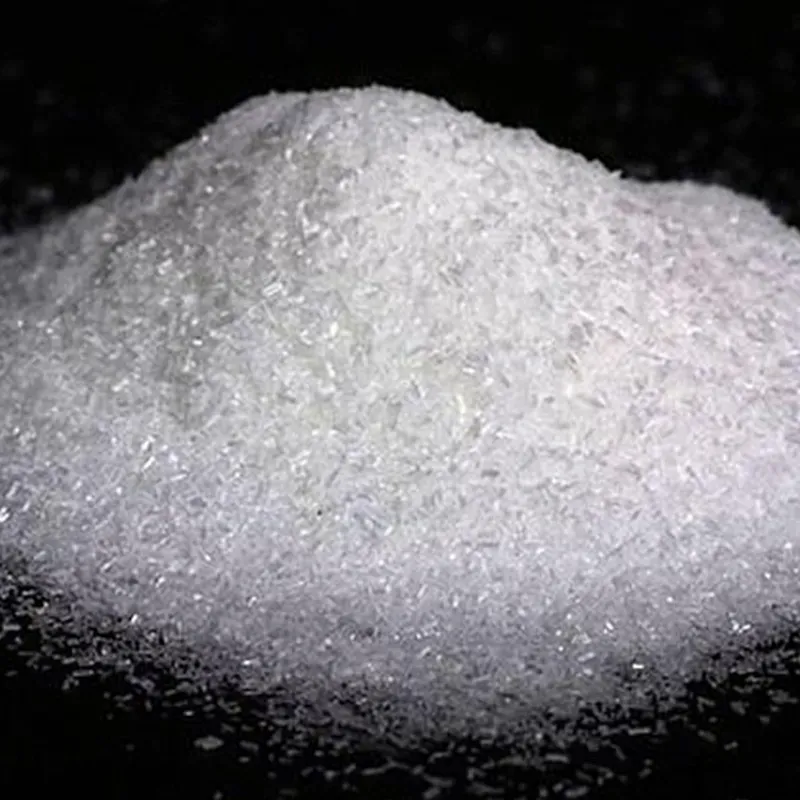
The Versatility of Monosodium Glutamate
Monosodium glutamate (MSG) is a popular ingredient used in a variety of food products, renowned for its ability to enhance flavors. As a flavor enhancer monosodium glutamate, it has become a staple in kitchens and food production facilities worldwide. From soups and snacks to restaurant dishes, monosodium glutamate seasoning is known for adding that extra layer of savory umami. Despite its popularity, many people are still curious about its safety and uses. In this article, we will define monosodium glutamate, explore its function as an additive and seasoning, and dive into the latest trends around this classic ingredient.

Define Monosodium Glutamate: What is MSG?
To define monosodium glutamate, it is a sodium salt of glutamic acid, a naturally occurring amino acid found in various foods like tomatoes, cheese, and mushrooms. Monosodium glutamate is commonly used to enhance the umami flavor in food, providing a savory taste that is one of the five basic tastes, along with sweet, salty, sour, and bitter. MSG is often associated with Chinese food, but it is used globally in a wide variety of culinary traditions, from soups and sauces to processed meats and snacks. By providing a deeper, more complex flavor, monosodium glutamate plays a crucial role in food preparation and production.
The Role of Flavor Enhancer Monosodium Glutamate in Cooking
As a flavor enhancer monosodium glutamate, MSG is famous for its ability to boost the taste of dishes. Unlike other seasonings that mask or change the flavor of the food, monosodium glutamate amplifies the inherent flavors already present. It works by stimulating taste receptors on the tongue, particularly the ones responsible for the umami sensation. This makes foods taste more savory, rich, and satisfying. Whether used in broths, gravies, or even snacks, flavor enhancer monosodium glutamate brings out the best in the ingredients, making it a beloved additive in both home kitchens and food manufacturing.
The Function of Monosodium Glutamate Additive in Processed Foods
In processed food production, monosodium glutamate additive plays an essential role in achieving consistent flavor profiles. As a food additive, MSG helps manufacturers maintain uniform taste in packaged foods such as canned soups, ready-to-eat meals, sauces, and snack foods. The use of monosodium glutamate additive allows for cost-effective flavor enhancement, providing a savory taste without the need for expensive or labor-intensive ingredients like fresh herbs and spices. By using monosodium glutamate additive, food producers can create products that are more appealing and palatable to consumers, making it a key component in the global food industry.
How Monosodium Glutamate Seasoning Improves Home Cooking
Monosodium glutamate seasoning is widely used in home kitchens to elevate the flavor of homemade dishes. It adds an irresistible savory richness to broths, stir-fries, and marinades, making them taste more complex and satisfying. Unlike salt, which primarily provides a salty taste, monosodium glutamate seasoning enhances the depth of flavors, particularly in foods that rely on umami for a balanced taste. For many home cooks, monosodium glutamate seasoning is an easy way to bring restaurant-quality flavor to everyday meals without spending hours in the kitchen. Whether sprinkled over a dish or incorporated into cooking, it helps bring out the best in a wide variety of foods.
The Safety and Popularity of Monosodium Glutamate
Despite occasional concerns about monosodium glutamate and its possible side effects, extensive research has confirmed that it is generally safe for consumption. The monosodium glutamate additive has been deemed safe by numerous food safety authorities, including the U.S. Food and Drug Administration (FDA) and the World Health Organization (WHO). In fact, it is classified as a food ingredient that is "generally recognized as safe" (GRAS). While some individuals may report sensitivity to MSG, such reactions are rare and not typically a concern for the vast majority of consumers. As its benefits and culinary versatility are better understood, monosodium glutamate continues to be popular worldwide as a flavor enhancer monosodium glutamate and seasoning.
In conclusion, monosodium glutamate is a powerful tool in the kitchen and in food production. As a flavor enhancer monosodium glutamate, monosodium glutamate additive, and monosodium glutamate seasoning, it plays a crucial role in boosting the umami taste in various foods. Whether you're preparing a homemade meal or working in a commercial kitchen, monosodium glutamate can elevate your dishes and make them more flavorful. With its widespread use and the ongoing confirmation of its safety, MSG remains an indispensable ingredient in kitchens around the world.
-
Sodium Dichloroisocyanurate Safety Handling ProtocolsNachrichtJul.29,2025
-
Mining Chemicals for Copper Extraction Processes GuideNachrichtJul.29,2025
-
Fertilizer for Sale Shipping and Storage TipsNachrichtJul.29,2025
-
Dimethyl Disulfide as Sulfurizing AgentNachrichtJul.29,2025
-
Benzotriazole Safety Data Handling and Storage GuidelinesNachrichtJul.29,2025
-
Ammonium Bicarbonate Safety Handling Storage GuidelinesNachrichtJul.29,2025
-
The Transformative Role Of Trichloroisocyanuric Acid in Water TreatmentNachrichtJul.23,2025
Hebei Tenger Chemical Technology Co., Ltd. konzentriert sich auf die chemische Industrie und hat sich dem Exportservice für chemische Rohstoffe verschrieben.
-

mehr sehen DiethanolisopropanolamineIn the ever-growing field of chemical solutions, diethanolisopropanolamine (DEIPA) stands out as a versatile and important compound. Due to its unique chemical structure and properties, DEIPA is of interest to various industries including construction, personal care, and agriculture. -

mehr sehen TriisopropanolamineTriisopropanolamine (TIPA) alkanol amine substance, is a kind of alcohol amine compound with amino and alcohol hydroxyl, and because of its molecules contains both amino and hydroxyl. -

mehr sehen TetramethylthiuramdisulfidTetramethylthiuramdisulfid, auch bekannt als TMTD, ist ein weißes bis hellgelbes Pulver mit einem deutlichen schwefelartigen Geruch. Es ist in organischen Lösungsmitteln wie Benzol, Aceton und Ethylacetat löslich, was es für den Einsatz in verschiedenen Formulierungen äußerst vielseitig macht. TMTD ist für seine hervorragenden Vulkanisationsbeschleunigungseigenschaften bekannt, was es zu einem wichtigen Bestandteil bei der Herstellung von Gummiprodukten macht. Darüber hinaus wirkt es als wirksames Fungizid und Bakterizid, was es für landwirtschaftliche Anwendungen wertvoll macht. Seine hohe Reinheit und Stabilität gewährleisten eine gleichbleibende Leistung und machen es zu einer bevorzugten Wahl für Hersteller in verschiedenen Branchen.











